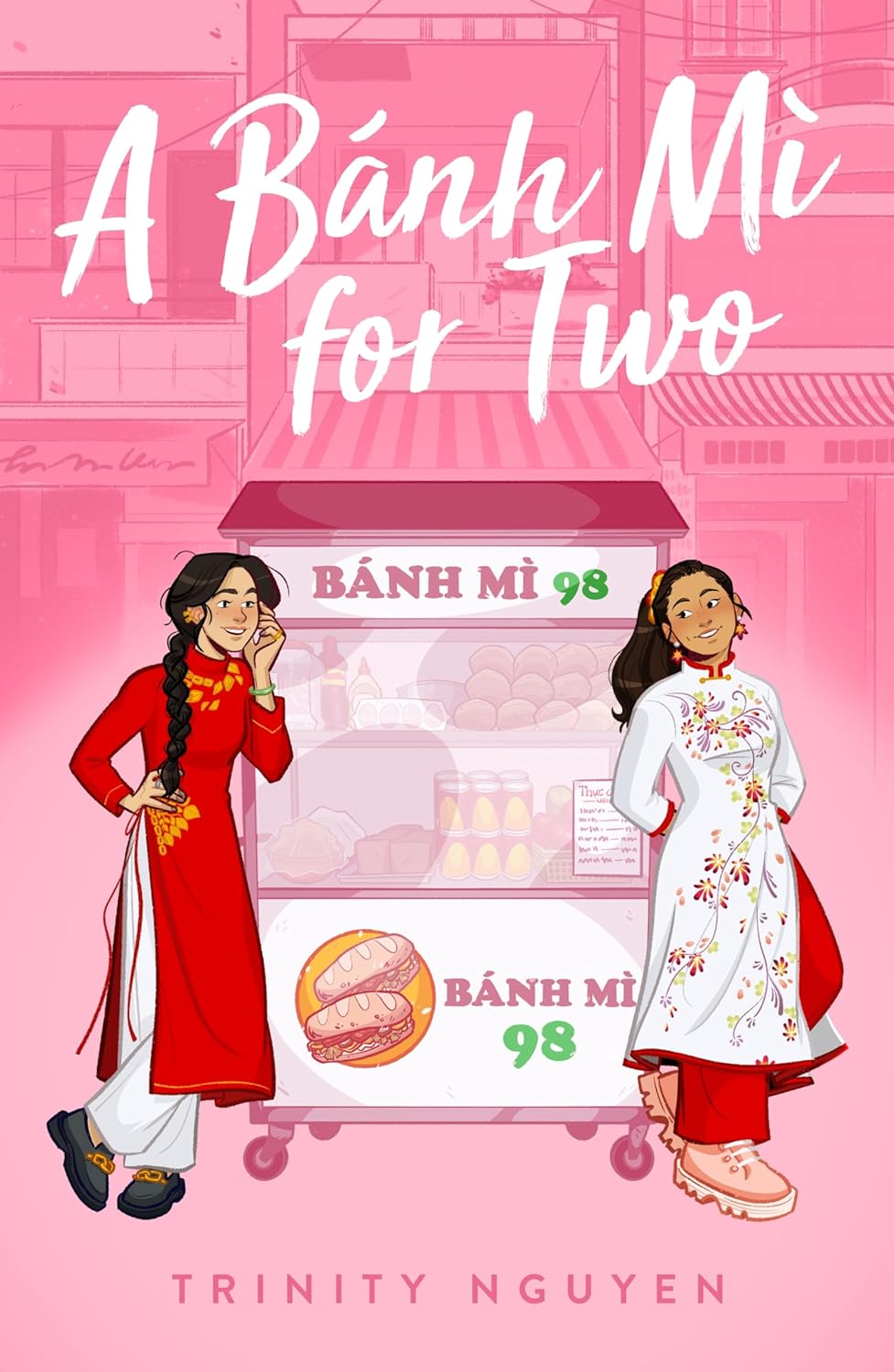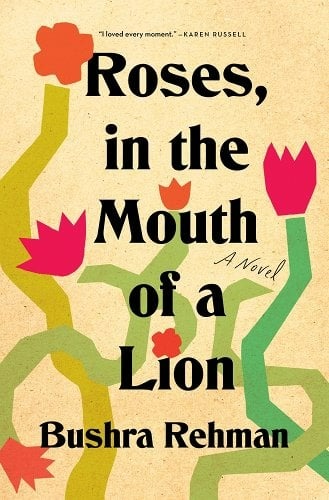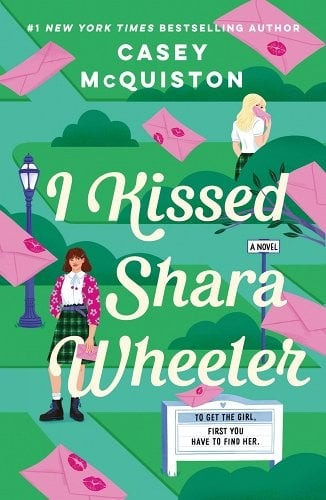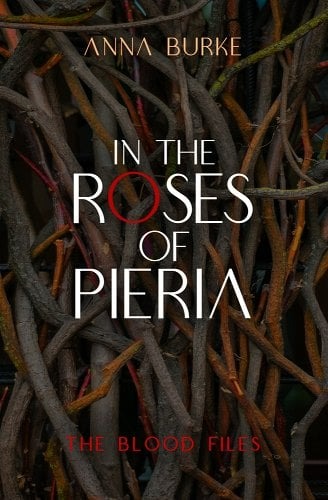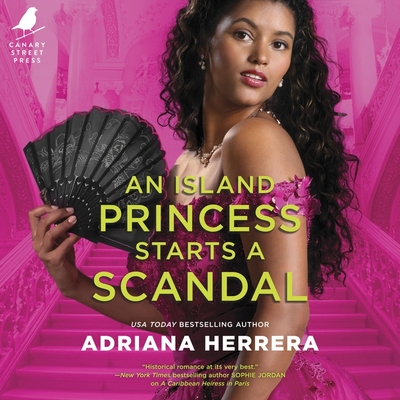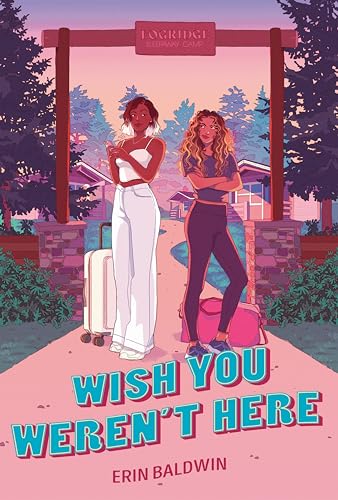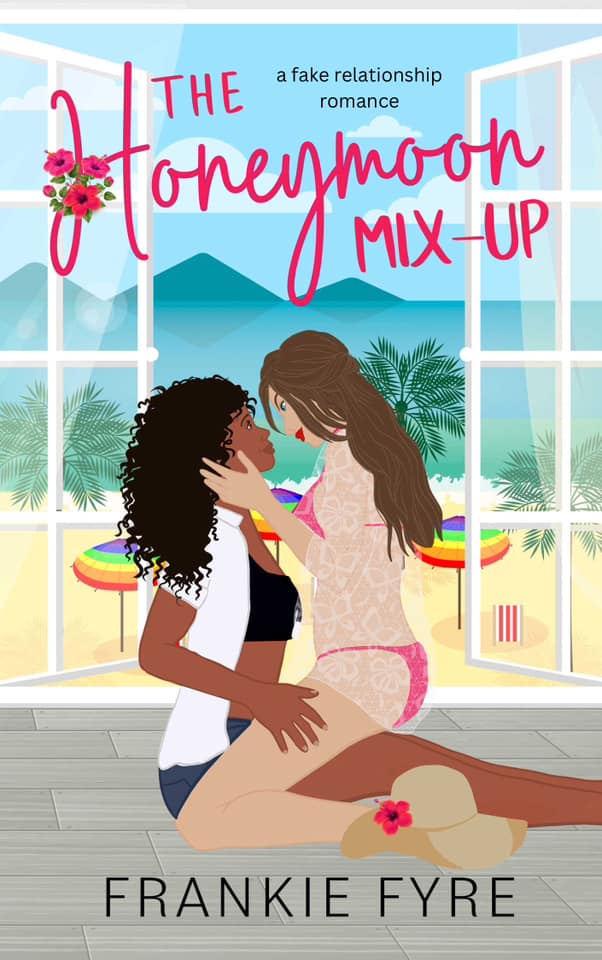If you’re looking for a fun one-sitting read, why not pick up this trans lesbian “mech rom-com graphic novel,” as the blurb describes it? I feel like you’re already sold, but I’ll keep going anyway. LSBN is a project to develop a mech suit to battle the giant, monstrous aliens that have descended to Earth.Read More
A Delicious Debut: A Bánh Mì for Two by Trinity Nguyen
A Bánh Mì for Two by Trinity Nguyen (she/her) is the perfect delicacy to round out your February reading. This dual perspective debut novel follows two young women over the course of a semester as they learn more about themselves, each other, and the rich, beautiful, and complex Vietnamese culture that binds them. Lan is aRead More
Compelling, Real, & Raw: Roses in the Mouth of a Lion by Bushra Rehman
Razia Mirza grows up amid the wild grape vines and backyard sunflowers of Corona, Queens, alongside her best friend, Saima. When a family rift drives the girls apart, Razia’s heart is broken. She finds solace in Taslima, a new girl in her close-knit Pakistani-American community, all while trying to manage the religious and cultural expectationsRead More
Beyond the Surface: I Kissed Shara Wheeler by Casey McQuiston
There’s only one thing standing in Chloe Green’s way of winning valedictorian: the town’s favorite and Chloe’s rival, Shara Wheeler. A month before graduation, Shara kisses Chloe, then does the most infuriating thing: vanishes. Chloe and two other boys Shara kissed are left with a series of cryptic notes; a scavenger hunt to find her.Read More
Dark Academia Ft. Sapphic Longing: In the Roses of Pieria by Anna Burke
Before we embark on our journey, a disclaimer: Anna Burke is a former professor and a friend, which is why I hesitated to write about In the Roses of Pieria. But who am I to second guess optics, and why should I let that get in the way of sharing one of my favorite moody OctoberRead More
A Swoony Historical Sapphic Romance: An Island Princess Starts a Scandal by Adriana Herrera
Buy this from Bookshop.org to support local bookstores and the Lesbrary! Manuela del Carmen Caceres Galvan wants to experience a final lesbian hurrah in Paris before she has to marry a rich man for her family’s security. Cora Kempf Bristol, Duchess of Sundridge, wants to secure her place in the business world by negotiating aRead More
A Sweet & Sizzling Summer Romance: A Bánh Mì for Two by Trinity Nguyen
Buy this from Bookshop.org to support local bookstores and the Lesbrary! If you are looking for a sweet and sizzling summer romance to end your summer on a high note, A Bánh Mì for Two by Trinity Nguyen is a sweet romance between a Vietnamese American college student and a food blogger in Sài Gòn whoRead More
Sapphic Sleepaway Camp: Wish You Weren’t Here by Erin Baldwin
Buy this from Bookshop.org to support local bookstores and the Lesbrary! Priya Freaking Pendley seems to have everything a girl could ask for: social media stardom, the handsome track captain boyfriend, and millions of adoring fans. Juliette might have to live with that during the school year, but at Fogridge Sleepaway Camp, Juliette reigns. It’sRead More
A Rivals to Lovers Soccer Romance: You Don’t Have a Shot by Racquel Marie
Buy this from Bookshop.org to support local bookstores and the Lesbrary! Racquel Marie’s You Don’t Have a Shot is a YA romance that centers around Valentina Castillo-Green, a high school soccer star whose life revolves around the sport. After an abrupt end to her junior year soccer season, Vale ends up at soccer camp, co-captaining a teamRead More
Fake Honeymoon to Real Love: The Honeymoon Mix-up by Frankie Fyre
Buy this from Bookshop.org to support local bookstores and the Lesbrary! Before my summer break ended, I decided to read a romance that gives off tropical vacation vibes. For this, I chose The Honeymoon Mix-up by Frankie Fyre, a fake romance set on the fictional Sapphire Isle, a resort dedicated solely to sapphic women. TheRead More
- 1
- 2
- 3
- …
- 7
- Next Page »

